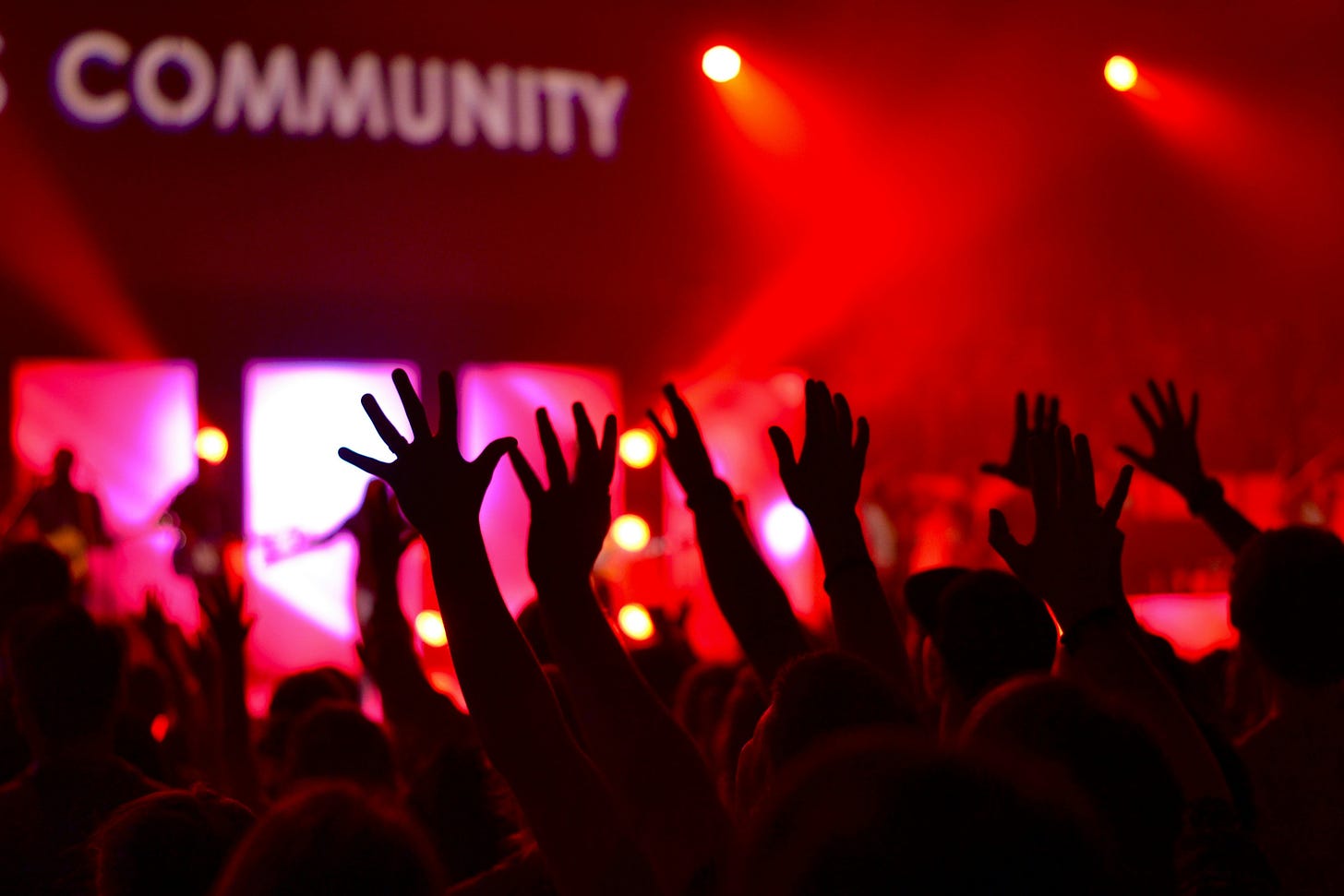How's Your Social Health? Mine's Been A Bit Shaky Lately
Hi, again. It's been a bit since my last post. I have lots of news to share in the coming days and weeks. For now, I'm thinking deeply about social health -- and about ways to reconnect.
Once or twice every week, I receive packages from people asking me to review their products or books. I joke with friends and family that I’ve become an “accidental influencer”. I always receive an email in advance asking if I’ll accept this or that, so I shouldn’t be surprised when a package arrives on my doorstep, yet I still am, every single time.
I don’t know how I ended up on so many PR professionals’ target lists, but I field several emails every day asking if I’d be willing to try this or that newfangled device or to read an advance copy of this particular thought leader’s book. Am I approached because I’ve been an outspoken local opinion columnist for publications including the Chicago Tribune, Chicago Sun-Times? Is it because several of my essays on uncomfortable subjects like race, gender discrimination, motherhood, and sexual harassment have gone viral? Is it because when you Google Memoir Coach, I’m the first organic listing? Or, is it simply because I once said yes to someone — and now I’m seen as a willing target? lol
Mystery solved?
Still, when I think of influencers, I can’t help but imagine all those young, twenty-somethings doing dances on TikTok that I might have once pulled off in my high school pom-pon-squad days. I think of influencers as people speaking to cameras while applying makeup, preparing food, and dispensing relationship advice. I definitely don’t think of myself as an influencer. If anything, I think I’m a writer who tells it like it is.
While I make my living as a memoir writing coach and therapeutic writing teacher, I sometimes pitch magazine and newspaper articles about topics that *might* benefit from product placement. Therefore, it makes sense that product marketing teams, public relations firms, publicity professionals, and publishers take gambles and send me items that *might* make it into one of my written pieces. Still, when I open a package from a company asking me to review a teeth whitening system or a survival kit for end-of-days or a baby crib or a golf shirt, it’s often a leap (at best) to imagine how I might write something authentic about a product I haven’t yet — or might never have — used. Nevertheless, I try to keep an open mind about everything, and I’m deeply honored that my opinion holds some value.
And yet… while reviews and trials are important earned media strategies, these practices are not something I’ve been accustomed to. When I wrote for the Chicago Tribune, for instance, I refused any items or gifts valued above $25. As a journalist, if someone wanted to send me a thank you mug or a small token of thanks for writing a researched piece about their business, I’d only accept them when they fell below that monetary threshold. Anything more felt wrong, and I’d return it with a compassionate and grateful note of thanks.
Now that I’m my own boss, I have more freedom and latitude to accept items (or not), but this doesn’t mean I’ve forgotten my journalistic integrity. I’m happy to try new products and learn about them, and I’m honored to read advance reader copies (ARCs) of books before they come out. Still, I make it a practice to write about these items only if I have authentic reasons to mention them. It’s one thing to keep my eyes and ears open to new things; it’s another thing to be bought.
Every day, I’m grateful that public relations folks consider me to review their offerings. As a former marketer myself, I know what a shameless, relentless game it is to build brand recognition. I also know I’m rarely the best person to help promote items. However, it’s such a great feeling when the right book or item arrives on my doorstep and I already have a good reason to write about it.
For instance, I’m looking forward to reading a book I was recently asked to review — Kasley Killam’s book The Art and Science of Connection: Why Social Health Is the Missing Key to Living Longer, Healthier, and Happier (HarperOne, 2024). I have high hopes for this title, and here’s why:
The work I do is more than simply writing. The foundation of my professional life is building communities for writers (including myself). Whether it’s sharing this Substack, teaching and speaking about the benefits of therapeutic writing to groups, offering in-person writing space rentals, performing stories before live audiences, or producing books, I love to inspire conversation and connection. And so, I’m hoping that The Art and Science of Connection offers insights into questions like:
Why have I been so driven to build community in so many ways?
Why do so many of us seek opportunities to connect?
How can I best design and execute socially connected offerings that satisfy the most needs?
According to author Kasley Killam, “Over the past thirty years, the percentage of Americans with ten or more close friends dropped by 20 percent.” Moreover, she writes, “Over the past twenty years, the amount of time people spent alone increased by an average of twenty-four hours a month.”
Those are some stunning stats.
Social health, Kasley Killam writes, is “the aspect of overall health and well-being that comes from connection — and it is vastly underappreciated. Whereas physical health is about your body and mental health is about your mind, social health is about your relationships[… B]eing socially healthy requires cultivating bonds with family, friends, and the people around you, belonging to communities, and feeling supported, valued, and loved, in the amounts and ways that feel nourishing to you.”
I’m looking forward to learning more about the social health movement and many of the topics Killam covers, like:
What is the state of my social health?
How do I strengthen my social health muscles?
How do I nurture connections in person AND online?

After I read the book, I plan to reach out to the author for an interview. Before that, though, I’d love to hear from you:
What questions do you have about social health?
What, if anything, impedes you from having stronger social connections?
What are your ideal, go-to social connections (real or imagined)?
When do you (or have you) felt most and least socially connected?





This topic intrigues me too! My sense is that like most things, the best ways for us each to create social health will be deeply personal, with no blueprint as such.
In my younger days I worked jobs where I HAD to be in connection with people most of the time, and it depleted me. Now, my work means I get to discern who I am working closely with and when, and it is such a relief. But, when I'm not working it's silence, solitary swims, walks, writing, and quiet time with my family that I reach for most of the time.
But I am contrary and do like being 'out' as well....e.g. partner dancing is one of my favourite ways to spend an evening. I love that it's possible to have connection with a complete stranger, feel in flow with them, and have a shared experience without having to say very much at all - all because you both love dancing!
In terms of online connection, something I've enjoyed this year, is gathering with a small group of women to work the Artist's Way - this has given me deep connection, with a light structure (we meet once every two weeks on Zoom) and sense of purpose and has supported my solitary creative practice which feels like the best of both worlds.
I’m fascinated by this topic as well and it seems everywhere I turn, someone is spouting the benefits/value of connection. As a very happy introvert, I keep looking for some representation in this conversation. My alone time is deeply nourishing, restorative and I’d even go as far as to say more important than the time I spend with others. That said, my work is constantly engaging with people, and often through very deep, reflective connection, but it’s all digital. But at the end of my work day, I long for nature, silence and time with my husband and cats.
I’d love to hear what the research is saying about digital connections and if they are seeing the same benefits as they do with in-person gatherings. And I’d also like to hear a more balanced argument for connection that includes nature and animals.